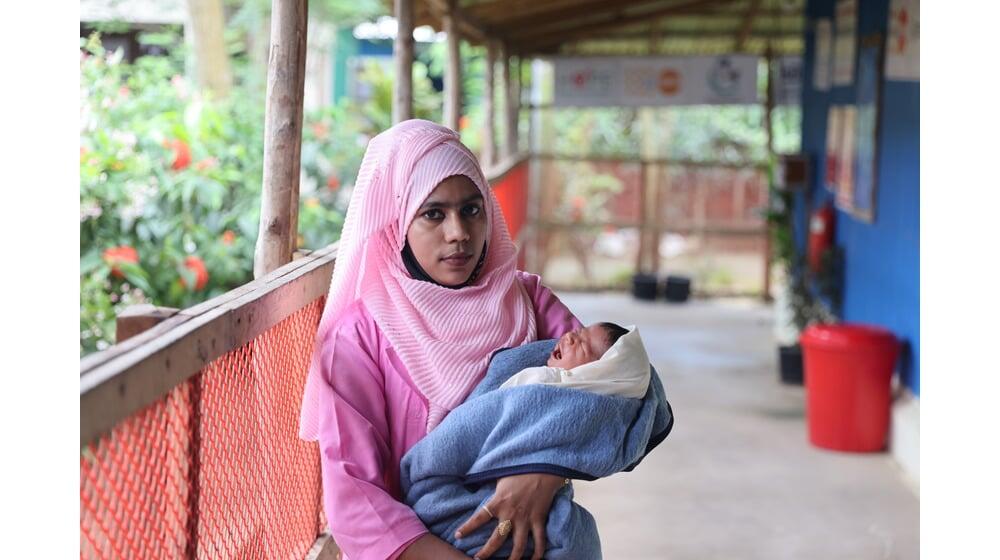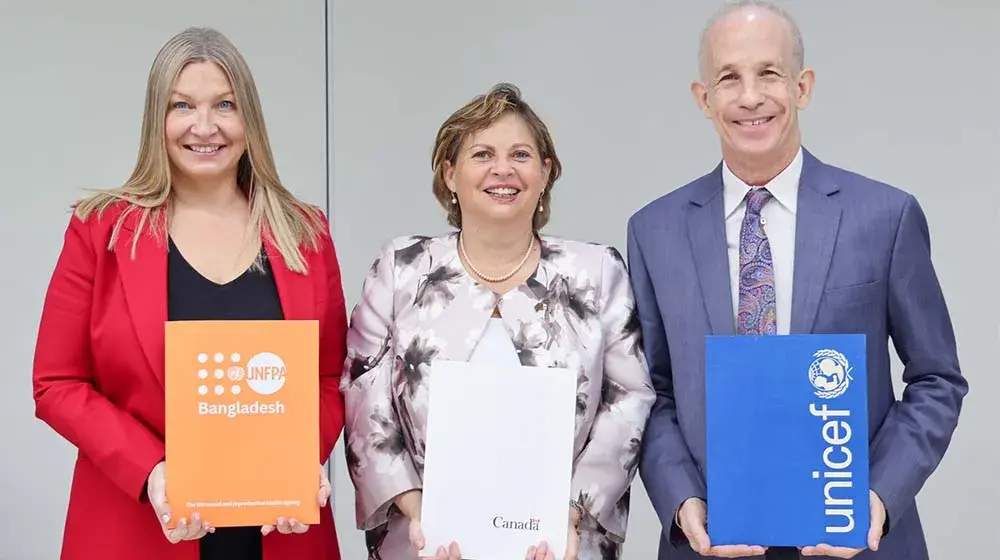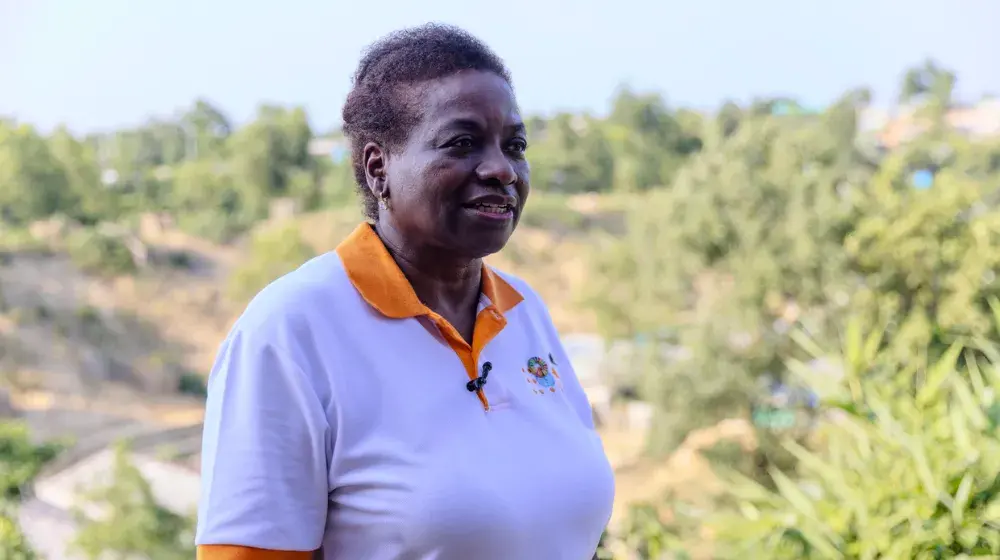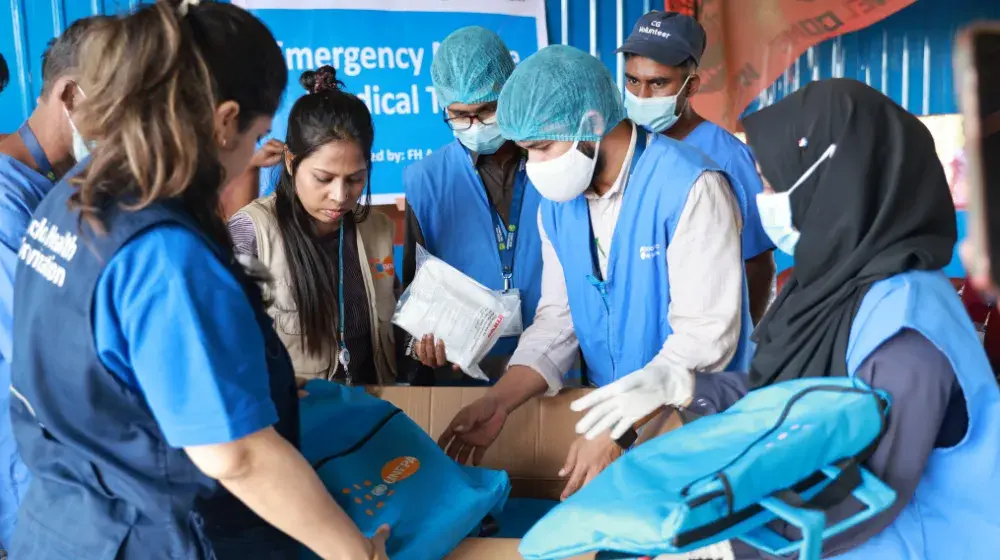Far from the main town of Cox's Bazar, a displacement camp for Rohingya refugees, 21-year-old Khadija* found herself facing a dual threat on May 14th: labor pains and the wrath of Cyclone Mocha as it made its destructive landfall along the coastal region. Khadija’s family called upon a trained birth attendant, she understood all too well the dangers she would encounter.
The powerful storm unleashed gales and torrential rain, triggering widespread flooding and multiple landslides across the district. Among the 2.3 million affected individuals were over 960,000 Rohingya refugees in Cox's Bazar, a population already burdened by poverty, marginalization, and high vulnerability. Health centers, safe spaces for women and girls, and countless homes were damaged or entirely destroyed, while the looming monsoon season threatened to bring further devastation.
Khadija's urgent need for assistance was met with obstacles as floods prevented a trained midwife from reaching her, and nearby health centers had been forced to close. However, a ray of hope emerged when her family managed to contact an ambulance funded by UNFPA and operated by their local partner RTMi. Swiftly, Khadija was transported to the UNFPA-supported HOPE field hospital.
On that fateful day, Nasrin Khatun, a 27-year-old midwife, was on duty at UNFPA supported Hope Field Hospital. She discovered that Khadija's blood pressure was dangerously high, a condition that poses a life-threatening risk during childbirth. Complications had also arisen due to the attempted home delivery.
Acting swiftly, the team worked together to safely deliver a healthy baby boy. Yet, their relief was short-lived when Khadija began experiencing profuse post-partum bleeding—a potentially fatal condition that, without the intervention of skilled midwives, could have resulted in severe illness or death.
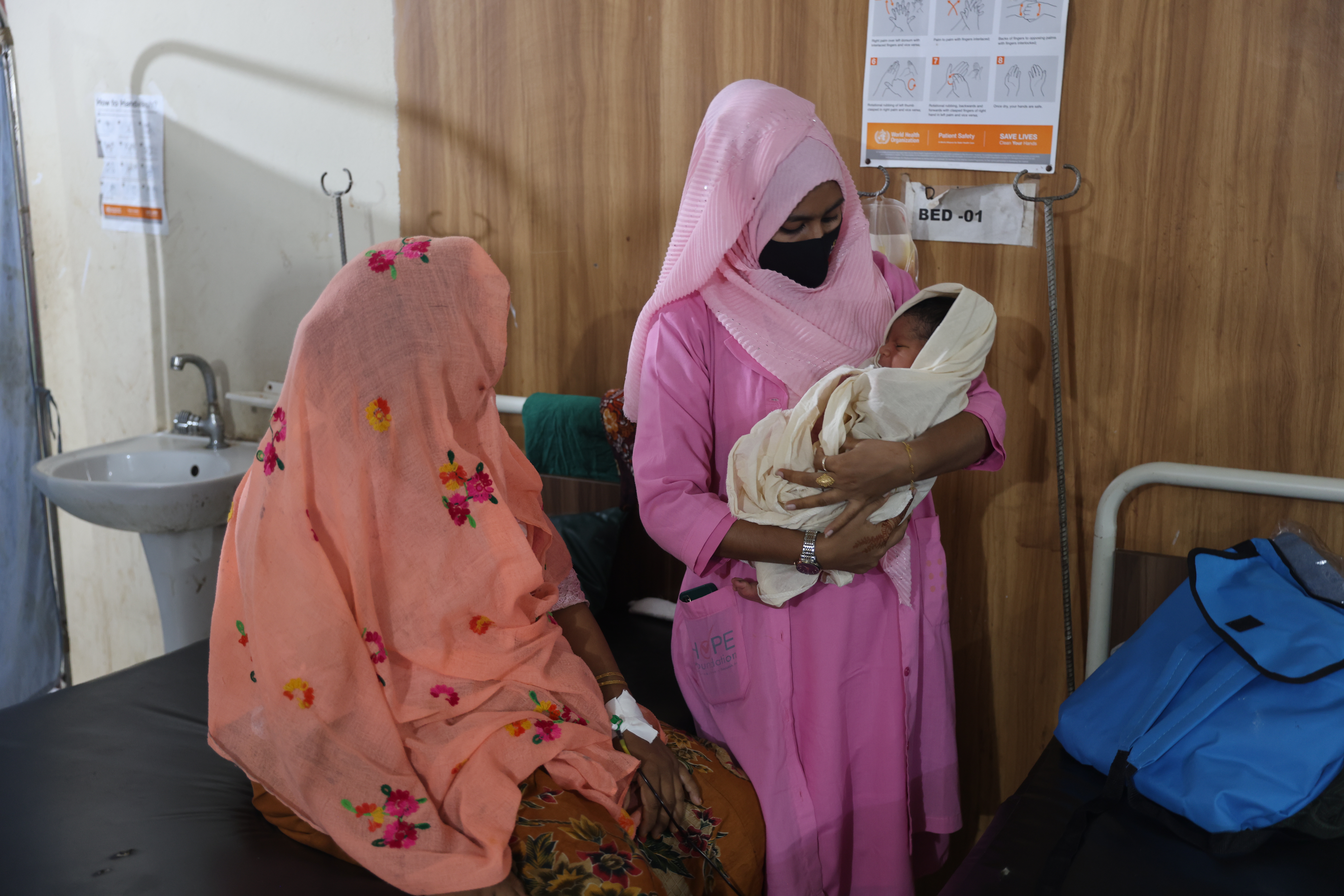
Ms. Khatun, reflecting on the experience, shared, "After successful deliveries, when mothers hold my hand and thank me with a full heart - that is the kind of moment that inspires me even more about my profession."
The perils faced by pregnant women in Cox's Bazar, home to the world's largest refugee camp, are magnified by the region's vulnerability to climate disasters. Refugees and host communities endure increasingly frequent floods, cyclones, and landslides, often losing their lives, loved ones, and homes to catastrophes like Cyclone Mocha.
Now safely back home with her newborn, Khadija continues to receive postnatal care and guidance from the hospital, including immunization shots for her newborn. Despite significant strides made by Bangladesh in reducing maternal mortality rates over the past two decades, the lack of trained birth attendants and midwives in crisis settings remains a grave concern. Limited access to health centers, shelter, food, and water intensifies the risks associated with pregnancy and childbirth.
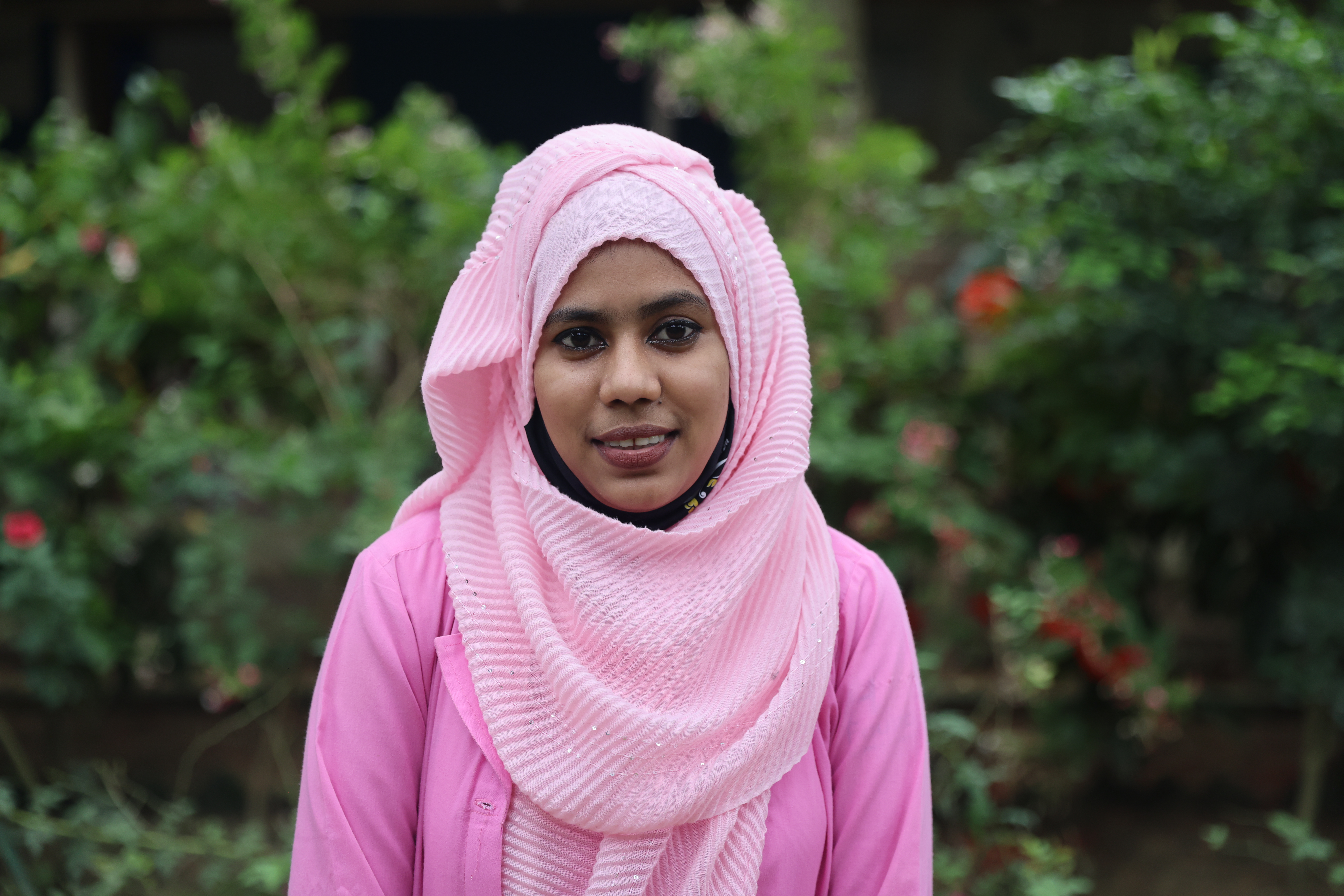
Ms. Khatun shared her personal motivation saying, "My elder sister had two miscarriages before her third child due to the absence of an expert midwife in the health facility. I don't want any mother to suffer such a thing during their precious moment—that's why I aspired to become a midwife."
Established in 2018 to address the sexual and reproductive health needs of displaced Rohingya women and girls fleeing violence and persecution in Myanmar, the HOPE hospital serves as a beacon of support within the refugee camp. Since its inception, the center has provided care to over 58,000 women and girls.
With the support of the Government of Australia and the Government of Bangladesh, UNFPA remains committed to reaching even the most remote areas and providing comprehensive sexual and reproductive health services. As climate change continues to impose heavy tolls on the lives of displaced communities, UNFPA's dedication to ensuring the health and rights of women and girls remains unwavering.

